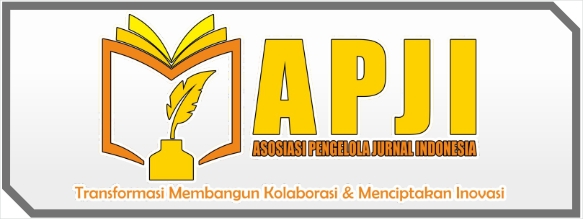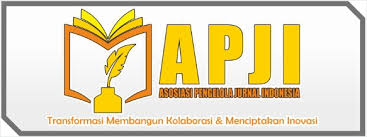Pemberdayaan Pewarisan dan Pelatihan Pengelolaan Kuliner Lokal Sagu Pisang kukus (Em Nime Ouw) Orang Ayapo
Empowerment of Heritage and Training for Management of Local Culinary Sago Steamed Banana (Em Nime Ouw) of the Ayapo People
DOI:
https://doi.org/10.70610/assoeltan.v3i2.920Keywords:
Empowerment of Heritage, Local Culinary, Management TrainingAbstract
The diversity of Indonesian culinary flavors has become a distinct identity for the region, this local culinary food can be easily found from Sabang to Merauke. This community service activity aims to empower and pass on the skills of managing local culinary arts, namely Steamed Banana Sago (Em Nime Ouw), to the Ayapo community, especially the younger generation. The problem faced is the declining interest of the younger generation in preserving traditional culinary due to the dominance of instant foods and the flow of modernization. The method used in this activity is Participatory Action Research (PAR), with live demonstrations by traditional leaders and elderly women who are still actively involved in making traditional culinary. This activity is carried out in a participatory manner, involving local youth in the entire production process, from selecting ingredients (red sago flour, ripe bananas, coconut water), mixing, wrapping with farofe leaves, to steaming in a traditional stove. The results of the activity show that the demonstrative approach successfully increases practical understanding and cultural awareness among the younger generation, while fostering pride in local culinary identity. In addition, strengthening cultural values through culinary media opens up new economic opportunities based on sustainable local gastronomic tourism.
References
Ardana, I. K., Mujiati, N. W., & Sriathi, A. A. A. (2008). Perilaku keorganisasian. Yogyakarta: Graha Ilmu.
Bagaihing, M., & Mantolas, C. M. (2021). Kuliner lokal sebagai produk budaya (Studi kasus pada On The Rock Hotel, Kupang). Journey: Journal of Tourismpreneurship, Culinary, Hospitality, Convention and Event Management, 4(2), 211–224. https://doi.org/10.46413/journey.v4i2.163
Bourdieu, P. (1986). The forms of capital. In J. Richardson (Ed.), Handbook of Theory and Research for the Sociology of Education. Greenwood.
Chao, S. (2021). In the Shadow of the Palm: More-Than-Human Becomings in West Papua. Duke University Press.
Chao, S. (2021). Children of the palms: Growing plants and growing people in a Papuan Plantationocene. Duke University Press.
Flassy, M., Saa, S., & Frank, S. A. K. (2022). Qanan: Food Processing in the Culture of the Tehit People in West Papua. ETNOSIA: Jurnal Etnografi Indonesia, 7(2), 117-129.
Flassy, M., et al. (2022). Revitalisasi Pengetahuan Lokal Melalui Kuliner Tradisional di Papua. Jurnal Sosial Budaya, 18(2), 45-61.
Hall, S. (1996). Cultural Identity and Diaspora. Routledge.
Ilham, A., et al. (2021). Kolaborasi Pariwisata dan Gastronomi Lokal. Jurnal Pariwisata Nusantara, 4(1), 23–35.
Ilham, I., Frank, S. A. K., Flassy, M., Muttaqin, M. Z., Idris, U., & Yunita, D. I. (2021). Hjiir Mentuk: Potensi kuliner lokal olahan masyarakat Kampung Tobati sebagai daya tarik wisata di Kota Jayapura. Jurnal Pariwisata Pesona, 6(2), 95–104. https://doi.org/10.26905/jpp.v6i2.6006
Kolb, D. A. (1984). Experiential Learning: Experience as the Source of Learning and Development. Prentice-Hall.
Lave, J., & Wenger, E. (1991). Situated Learning: Legitimate Peripheral Participation. Cambridge University Press.
Manurung, S., & Wahyudi, R. (2023). Pelestarian Pangan Tradisional Berbasis Etnobotani. Jurnal Pangan Lokal Nusantara, 7(2), 12-27.
Okazaki, E. (2008). A community-based tourism model: Its conception and use. Tourism Management, 29(2), 511–529.
Primasari, D., & Siswojo, I. (2012). Penguatan Identitas Budaya Melalui Gastronomi Lokal. Jurnal Gastronomi Indonesia, 1(1), 10-22.
Primasari, A., & Siswojo, T. (2012). Promosi kuliner lokal sebagai daya jual pariwisata Indonesia untuk backpacker asing. Visual Communication Design, 1(1), 1–15. https://journal.unnes.ac.id/sju/index.php/vcd/article/view/179985
Rahmawati, L., et al. (2021). Pemberdayaan Perempuan Lewat Pelatihan Kuliner Tradisional di Minangkabau. Jurnal Pemberdayaan Masyarakat, 6(1), 41–53.
Ruhulesin, M. (2015). Mitologi makanan masyarakat Sentani: Antara simbolisme dan spiritualitas. Jayapura: Universitas Cenderawasih Press.
Setiawan, H., Hamid, A., Ummasyroh, U., & Bustan, J. (2020). Model daya tarik kuliner lokal sebagai pendorong daya tarik wisata kuliner. INOVASI, 16(1), 120-126.
Setiawan, A., et al. (2020). Etnobotani dalam Praktik Kuliner Tradisional. Jurnal Etnobiologi Indonesia, 2(1), 66–75.
Siregar, M., & Kleden, Y. (2022). Potensi Gastronomi Lokal dalam Ekonomi Kreatif NTT. Jurnal Kajian Sosial Budaya, 5(2), 88–102.
Sulistyorini, D. (2020). Pendidikan Budaya Berbasis Praktik Tradisional. Jurnal Pendidikan dan Kebudayaan, 25(1), 32–44.
Toledo, V. M., & Burlingame, B. (2006). Biodiversity and Nutrition: A Common Path toward Global Food Security and Sustainable Development. Journal of Food Composition and Analysis, 19(6), 477–483.
Wahyuni, R., et al. (2021). Partisipasi Generasi Muda Dalam Pewarisan Budaya Kuliner Suku Bajo. Jurnal Pengabdian Masyarakat Indonesia, 3(4), 75–89.
Widjono, H., Mangindaan, R. E. J., & Tampake, D. (2005). Potensi dan distribusi sagu di Indonesia. Dalam Pengembangan Agribisnis Sagu di Indonesia. Badan Penelitian dan Pengembangan Pertanian, Kementerian Pertanian Republik Indonesia.
Downloads
Published
How to Cite
Issue
Section
License
Copyright (c) 2025 Assoeltan: Indonesian Journal of Community Research and Engagement

This work is licensed under a Creative Commons Attribution-ShareAlike 4.0 International License.
License: CC BY-SA 4.0 (Creative Commons Attribution-ShareAlike 4.0 International License)












